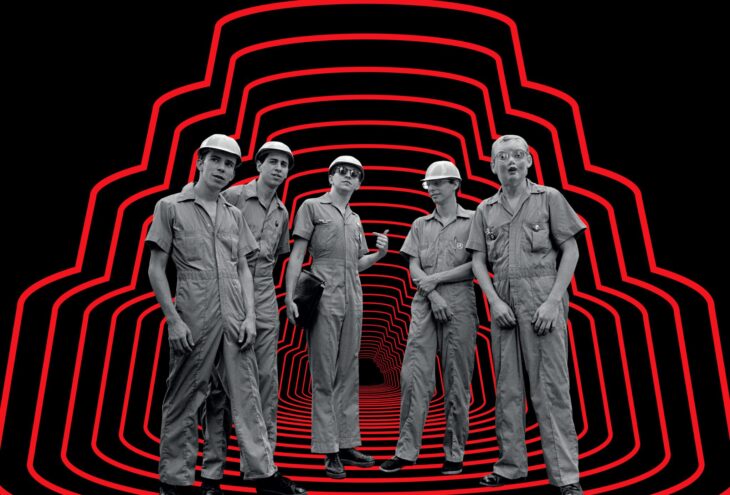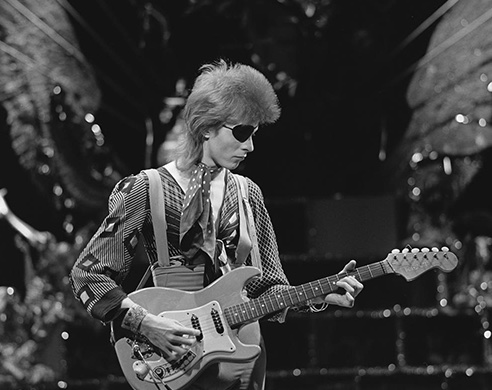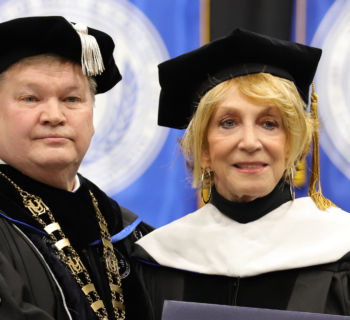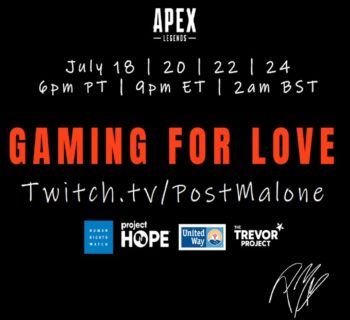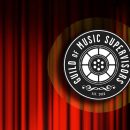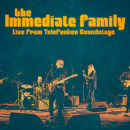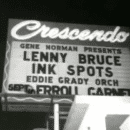DEVO, the feature documentary about the pioneering New Wave band DEVO, is now streaming globally as a Netflix Original. The film premiered to rave reviews from critics and audiences at Sundance 2024:
“A zippy, zany, whip(it)-smart documentary” - INDIEWIRE
“For Devo fans, it’s 90 minutes of irresistible pop history and dazzlingly edited surrealist audio-visual candy.” - VARIETY
“This is utterly fantastic. On some level stupendous. This is not your average rock doc. You know, a linear retelling of the band's career, pure fact with a bit of rearview interpretation by those still alive. RATHER, this is all about the inspiration, this is all about the ARTISTRY! And we haven't had that spirit here for a very long time. If you're a baby boomer, you will remember. The inspiration of old films, from W.C. Fields to the Marx Brothers to Inherit the Wind, which had a profound effect on Mark Mothersbaugh. Who is inspired by a pamphlet given to him by a teacher which lays out so much of the Devo philosophy long before there even is a band.” –THE LEFSETZ LETTER
Netflix trailer: https://www.youtube.com/watch?v=FgV8X2x6xvE
An announcement from Rhino touted 2025 DEVO endeavors:
“Acclaimed filmmakerChris Smith (Wham!, Fyre, 100 Foot Wave, and Jim & Andy: The Great Beyond) captures the gloriously radical spirit that is DEVO – a rare band founded by a philosophy; a Dada experiment of high art meets low, hellbent on infiltrating American popular culture. Through never-before-seen archival and interviews with Mark Mothersbaugh, Bob Mothersbaugh, and Jerry Casale, DEVO relishes in the highs, lows, surreal moments and incredible performances of a 50-year career, embracing the spectacle of the band from their lo-fi beginnings to pioneers of the music video in the early days of MTV’s cultural dominance.
“Band members are open with their memories and archives, charting their origins as Kent State University arts students shaped by the activism of the late 1960s. Following the 1970 massacre on their campus, the band’s concept of cultural “De-Evolution” turned from satirical humor to urgent social commentary, and what began as subversive counterprogramming to KSU’s 1973 arts festival would go on to warn of, comment on, and reflect back the absurdism of the late 20th century. Finding mainstream success at the height of 1980s consumerism, DEVO soundtracked the De-Evolution they’d long predicted – and influenced a 21st century they’d have never believed.
“DEVO is a Library Films / VICE Studios production in association with Mutato Entertainment, presented by BMG, Undeniable (a Fremantle label), and Warner Music Group. The film is available exclusively on Netflix starting today. Listen to the DEVO Netflix Official Playlist here: https://netflixmusic.ffm.to/devo.
“Accompanying the band's documentary is a companion piece, Energy Dome Frequencies: Songs From The DEVO Documentary, available as a 1LP and CD on October 31. Featuring unforgettable DEVO hits like "Girl U Want," "Uncontrollable Urge," and their platinum-certified single, "Whip It."
“Energy Dome Frequencies: Songs From The DEVO Documentary track listing:
Side One
- Mongoloid (Warner Version)
- Jocko Homo (Warner Version)
- (I Can't Get No) Satisfaction
- Uncontrollable Urge
- Girl U Want
- Freedom Of Choice
Side Two
- Whip It
- Gates Of Steel
- Working In The Coal Mine
- Beautiful World
- Through Being Cool
- That's Good
“In summer of 2025, the group is gearing up to unite with The B-52’s for the 2025 “Cosmic De-Evolution Tour”: a co-headlining 12-date run serving as both bands’ continuing concert farewells. Lene Lovich will open the trek, which launches September 24th in Toronto and wraps November 2nd in Houston.Tickets are available at LiveNation.com.”
COSMIC DE-EVOLUTION TOUR DATES 2025:
9/24 - Toronto, ON @ Budweiser Stage
9/25 - Clarkston, MI @ Pine Knob Music Theatre
10/2 - Mansfield, MA @ Xfinity Center
10/4 - Holmdel, NJ @ PNC Bank Arts Center
10/5 - Wantagh, NY @ Northwell at Jones Beach Theater
10/16 - Mountain View, CA @ Shoreline Amphitheatre
10/18 - Los Angeles, CA @ Hollywood Bowl
10/19 - Los Angeles, CA @ Hollywood Bowl
10/24 - Charlotte, NC @ PNC Music Pavilion
10/25 - Alpharetta, GA @ Ameris Bank Amphitheatre
11/1 - Austin, TX @ Germania Insurance Amphitheater
In 1973, out of the remnants of late ’60s political activism and the rising post-punk music climate, the seminal band DEVO was born. The formative lineup consisted of two sets of brothers—Mark and Bob Mothersbaugh, and Gerald and Bob Casale—along with drummer Alan Myers, all hailing from Akron, Ohio. The band’s prophetic message of “Devolution” and their strikingly original fusion of electronics and punk made them a singular influence throughout the ’80s and into the ’90s.”
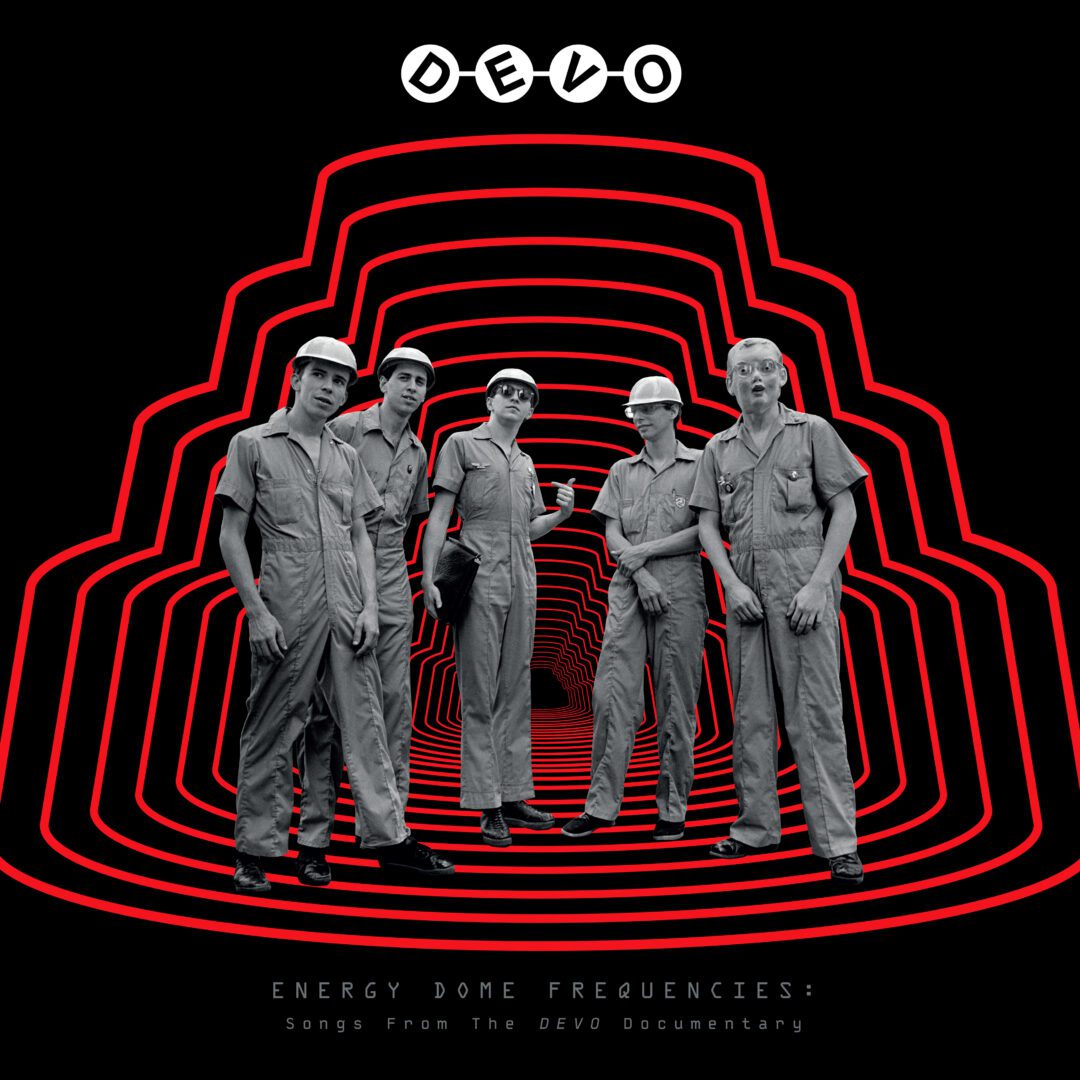
DEVO began when Mark Mothersbaugh and Gerald Casale met as students at Kent State University and began exchanging ideas about art and music. Deeply influenced by the Vietnam War, campus protests, and the tragic Kent State shootings of May 1970, the duo started making films and writing songs that would evolve into a wholly unique performance style.
Their art-meets-music ethos quickly propelled them into the spotlight as one of the most high-profile acts in the New Wave movement.
During 1976, it was the Hollywood-based music publisher Dan Bourgoise of Bug Music who played me DEVO recordings right after the group landed in Southern California. He also screened DEVO videos by director Chuck Statler. I met Mark in his office. I saw DEVO’s debut in Hollywood, as well as numerous shows, including a gig at the Santa Monica Civic Auditorium with Mink Deville.
After interviewing Leonard Cohen for Melody Maker in the late seventies, we went to see DEVO at The Starwood. I recall Leonard and I talking about bluegrass music in the dressing room. In the late fifties Leonard was in a band the Buckskin Boys, and in 1968 recorded Songs From A Room in Nashville Tennessee with producer Bob Johnston. The members of DEVO quickly bowed out of any discussion with us on bluegrass and country music. It was obvious that these art heads were not at all interested, let alone wanting to be associated with past musical genres.
In 1978, after earning a fervent cult following that included David Bowie, Iggy Pop and Neil Young, after a show in New York at Max’s Kansas City, Bowie declared DEVO “the band of the future,” DEVO was whisked off to Germany. There, Brian Eno—along with Bowie’s collaboration—produced their debut album Q: Are We Not Men? A: We Are DEVO!. The record caught the attention of both critics and the industry, helping the band build a following. It wasn’t until their third album, Freedom of Choice—produced by Bob Margouleff and featuring the double-platinum single Whip It—that DEVO became a worldwide band.
They continued to evolve, releasing influential albums such as New Traditionalists, Oh No! It’s DEVO, and Shout. Their visual and sonic innovations helped define the aesthetic of the early MTV era.
In 1990, DEVO went on hiatus to pursue other creative paths and during 1996, DEVO reunited for the first time in six years at the Sundance Film Festival to an exuberant crowd—DEVO was back with the original lineup intact (except for Alan Myers, who was replaced by drummer Josh Freese), the band reignited their live performance legacy. Freese remained with DEVO for nearly two decades.
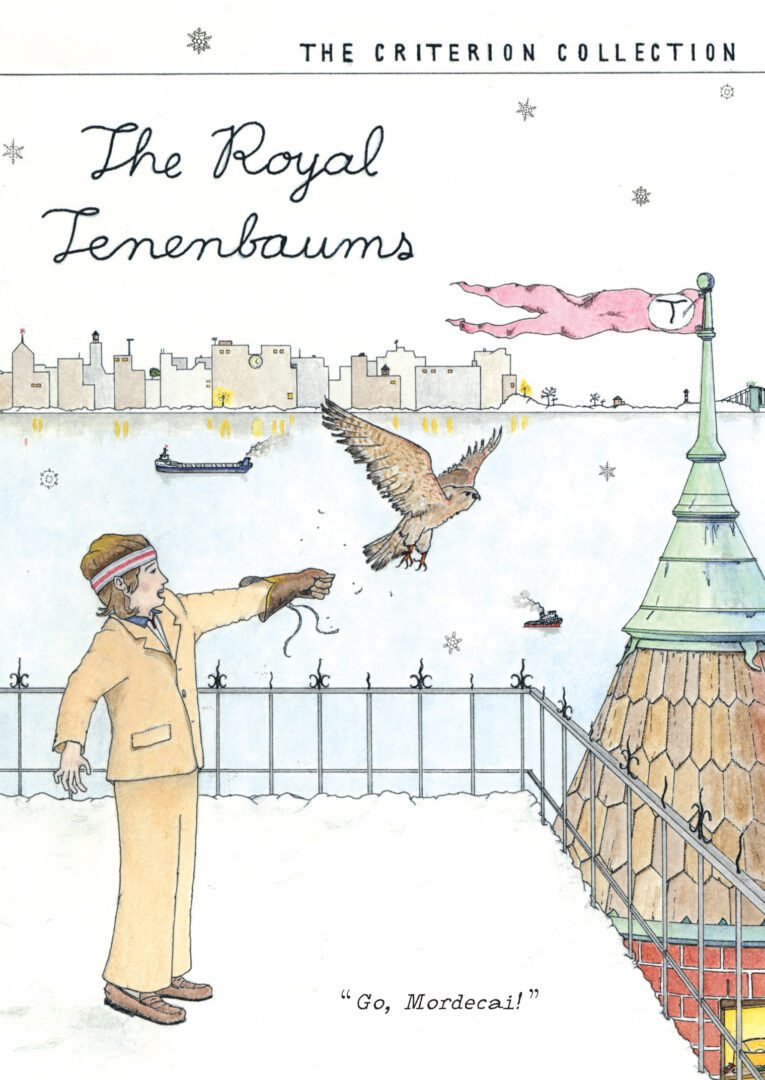
Since then, DEVO has continued to perform at festivals and venues around the globe. Their message feels contemporary, and their influence can be heard in bands ranging from Rage Against the Machine and Nirvana to LCD Soundsystem and Santigold.
Kurt Cobain once said, “Of all the bands who came from the underground and made it in the mainstream, DEVO were the most challenging and subversive of all.” (Nirvana covered DEVO’s Turnaround, featured on their 1992 compilation Incesticide.)
In 2023, DEVO embarked on their 50th Anniversary Tour, featuring three original members—Mark and Bob Mothersbaugh, and Gerald Casale. Jeff Friedl now holds the drumsticks, and Josh Hager has taken over for the late Bob Casale on rhythm guitar and synths. Their high-energy performances blend punk, rock, and synth-pop in a way that continues to delight a loyal audience.
It was in 1990 when DEVO went on hiatus to pursue other creative paths.
Mark Mothersbaugh received a call from friend Paul Reubens and went on to compose the theme and music for Pee-wee’s Playhouse. This unexpected opportunity launched him into a prolific career in film and television composition. He founded Mutato Muzika—a full-service music production house and a nod to his DEVO roots ("mutant" + "potato")—and brought in Bob Mothersbaugh and Bob Casale.
Based in the Oscar Niemeyer building on Sunset Boulevard, Mutato became one of the most successful music houses in Hollywood. Mark has since become one of the most in-demand and highest-grossing composers in the industry. In addition to hundreds of commercials, games, and television projects, his film scores include The Rugrats Movie, Wes Anderson’s Rushmore and The Royal Tenenbaums, The Lego Movie, Thor: Ragnarok, Cocaine Bear, and most recently, A Minecraft movie.
Gerald Casale, director of most of DEVO’s music videos, became a notable figure in the MTV revolution, directing videos for bands like Rush, Foo Fighters, Soundgarden, and Silverchair. He also built a successful commercial career, directing for brands including Miller Lite, Diet Coke, Mrs. Butterworth's and Tang.
I’ve always enjoyed Mothersbaugh’s soundtrack score to The Royal Tenenbaums. A film starring Gene Hackman, Anjelica Houston, Ben Stiller, Gwyneth Paltrow, and Luke Wilson. The Royal Tenenbaums is a hilarious, touching, and brilliantly stylized study of melancholy and redemption from Anderson.
The Criterion Collection has released a Blu-Ray with a restoredhigh-definition digital transfer, supervised by director Anderson, with 5.1 surround DTS-HD Master Audio soundtrack · Audio commentary by Anderson · With the Filmmaker: Portraits by Albert Maysles, featuring Anderson · Interviews with and behind-the-scenes footage of actors Gene Hackman, Anjelica Huston, Ben Stiller, Gwyneth Paltrow, Luke Wilson, Owen Wilson, Bill Murray, and Danny Glover · Outtakes · The Peter Bradley Show, featuring interviews with additional cast members · Scrapbook featuring young Richie’s murals and paintings, still photographs by set photographer James Hamilton, book and magazine covers, and storyboards · Studio 360 radio segment on painter Miguel Calderón, along with examples of his work · Trailers · Insert with Eric Anderson’s drawings of the Tenenbaum house · PLUS: An essay by film critic Kent Jones
During July 2025, DEVO made available a restored version of their May 1976 short film, The Truth About De-Evolution. In 1977 the movie won first prize at the Ann Arbor Film Festival. The nine-minute film, directed by Chuck Statler, now incorporates upgraded audio and video by archivist, Peter Conheim, and the Cinema Preservation Alliance. It includes two DEVO renditions of “Secret Agent Man” and “Jocko Homo.” An Instagram post promised, “More restored films and mind-melting content coming soon.”
Last century I was at a music business event in West Hollywood. At the food line, Mark Mothersbaugh introduced himself and praised my work with the Doors’ Ray Manzarek. Mark then offered, “Hearing the Doors’ ‘Light My Fire’ and Ray Manzarek’s keyboard was a big influence on a teenage kid in Akron, Ohio.”
During 2006 I interviewed Mark Mothersbaugh.
Q. How did you begin working with Wes Anderson?
A. The Royal Tenenbaums. How it began. Asked to look at a film by someone at Sony that Owen and Wes wrote together Bottle Rocket. Saw a screening and thought it was much more interesting than other movies made about this generation.
I’d like to do music for this that had nothing to do with rock ‘n’ roll or current trends or MTV. I was offered the score. I met with Wes and we talked, led to Rushmore and Tenenbaums. Now we have a vocabulary when we work. Since we had done two films, he was calling me when he was writing the script for The Royal Tenenbaums, so we were talking back then, trading music over a year before the movie came out.
Q. What about the process of the composer working with the record label for soundtracks?
A. Labels don’t really care about composers. That’s the truth. Generally speaking, a label is generally looking for a way to sell, they look at the movie as a poster, a commercial for their talent they’ve signed. And they don’t know what do with, and try and pick up movies that they think they can stick their songs into, and don’t care where, or how, usually.
Most movies do not care about the underscore when it comes to a soundtrack album because, from a numbers point of view, it’s a rare soundtrack that sells numbers that are exciting to a record company.
With my pieces on Tenenbaums, it’s Wes’ call. He was very adamant about the score being on the soundtrack. That’s the only reason it’s there. The movie is Wes’ vision. He’s an artist.
Now movies are made, with a lot of lawyers in the middle and there’s a lot of focus, depending on your focus group, either 16 year old boys in Encino or 12 year old kids in Pasadena. Typically, they tell you how much money they have for a music budget and from the get go Wes knew he wanted some of these songs.
Q. You’ve been the artist with DEVO, what’s the best way for the composer to work with a director and music supervisor?
A. It took me a while to get there. I always looked at music supervisors as being unnecessary and meddlesome and over credited. And I think you have to try and understand everybody’s motivations and why they are there in the first place.
The most important thing for me is helping a director achieve his vision. You’re given the limitations of what the film company thinks your worth, you have that many dollars to use towards that goal and a lot of time directors don’t have a clue about a soundtrack album. In the case of Wes, it was quite different. Every single piece of this movie is important to him. He sat with me while I was writing music for the film and scoring and we talked constantly during the process. Most times directors get nervous, or are too busy to do that, or they’re already on to the next project. He sat in the back room. He’s probably the most hands-on director I’ve ever worked with.
In this case I wrote cues while temp music was already in place. It’s very common that the songs are in place before the film gets to a composer. But unlike our previous collaborations, this is the first time he called me to discuss music as he was putting the script together. So, I was writing sketches based on early drafts of the script and then sending them to him. That allowed him to listen to the music as he was filming. Actually, I was writing music when he gave me the first draft of his script back in November of last year.
Q. What drew you to Wes?
A. His temp music was one of the reasons I wanted to work with him from the very beginning. Even in Bottle Rocket. Like in that one, he used the Rolling Stones’ ‘2000 Year Old Man’ which I really like. I thought, ‘what an odd choice, but it was a perfect choice.’ How interesting that he would go there instead of doing something from MTV.
That’s what made me want to meet him in the first place. ‘This is somebody who needs somebody to protect him and to help him create his vision.’ He has interesting tastes and makes a lot of his choices intellectually, but they always resonate with what he’s doing. He picks things that compliment his picture. It’s like, there are movies I’ve worked on where because before they got to the end of the movie, they made a deal with a company or label, and it’s doesn’t matter who they are to the label, and it’s kind of at a certain point it doesn’t matter to the film makers, they just want an album and hoping and fishing for a hit song. And if it relates to the music, all the better, but if it doesn’t, they quite honestly could care less.
By the time we mixed the movie we backed off from some of the score simply because there were so many songs in the audio, you didn’t want to distract anybody. But that’s a balance you find as you are going along and it becomes determined what songs are going and staying.
Q. What about scoring for movies and directors who might like your band. Does it help?
A. You know what, maybe a little bit, but I wouldn’t over rate that. I don’t think it’s necessarily a plus to come from a band. The reality is that there’s a lot of people who were in bands that tried to get into composing and it didn’t work. It’s a totally different monster. I think the writers that have the most success are ones that are empathetic and are able to. First of all, you have to understand what your job is, and your job is to help the director’s vision come to fruition. And when you’re in a band that’s not really what your job is at all. You have your own vision and your own story to tell, and pitty the person who tries to fuck with that.
Q: As a band, DEVO have had songs in films and soundtracks.
A: Jerry and I are both kind of active in that, and the other Devo members all work with me at Mutato, so sometimes they’ll be working on a project, like Bob has done a couple of movies for MTV where he’s been able to suggest things. There’s some involvement.
Regarding music videos, we thought we were doing something different and bigger when we were making our films. We thought we were creating a new art form that was going to eclipse rock and roll, believe it or not. That’s what our intentions were.
Unfortunately, MTV came along, we had ideas earlier about music television and sound and vision eclipsing rock and roll and visual audio artists, people who were multi-media artists would become more prominent in pop culture, but I think because it didn’t happen early enough lawyers had already started to figure out a way to turn it into home shopping network. What we were doing was sort of reduced to baby pictures for record companies. Just a 3 and a half- minute commercial.
Q. What does music add to movies, since you’re in deep in the game now? How does music support a movie?
A. I think composers know better than anybody what their music brings to a movie because when you are in the process of writing things you don’t always write what goes on the screen is probably not always the first thing that you write. In my case, sometimes it’s the third, fourth or fifth thing I’ve written for a scene, instead of the first.
Q. There seems to be a trend where directors are really involved in the music in their films and hands on in music and songs on soundtracks, and maybe music informs the script. How do you see the role or roles of the soundtracks as far as the composers in the future and music on the screen?
A. I think scores showing up on CD’s only relates to an economic viability to it. If they can figure out a way to do it and just hit the niche market that wants it. I don’t think you’re ever going to talk the general public into thinking that underscores should be listened to without the movie. They’ll be moments when the underscore catches someone’s fancy like a Henry Mancini theme that actually becomes a song that’s part of the movie. And stuff like that does happen. Rock music has been around so long now, it’s like the classical music of our time in a way.
(Harvey Kubernik is the author of 20 books, including 2009’s Canyon Of Dreams: The Magic And The Music Of Laurel Canyon, 2014’s Turn Up The Radio! Rock, Pop and Roll In Los Angeles 1956-1972, 2015's Every Body Knows: Leonard Cohen, 2016's Heart of Gold Neil Young and 2017's 1967: A Complete Rock Music History of the Summer of Love. Sterling/Barnes and Noble in 2018 published Harvey and Kenneth Kubernik’s The Story Of The Band: From Big Pink To The Last Waltz. In 2021 the duo wrote Jimi Hendrix: Voodoo Child for Sterling/Barnes and Noble.
Otherworld Cottage Industries in 2020 published Harvey’s Docs That Rock, Music That Matters. His Screen Gems: (Pop Music Documentaries and Rock ‘n’ Roll TV Scenes) is scheduled for 2025 publication.
Harvey wrote the liner notes to CD re-releases of Carole King’s Tapestry, The Essential Carole King, Allen Ginsberg’s Kaddish, Elvis Presley The ’68 Comeback Special, The Ramones’ End of the Century and Big Brother & the Holding Company Captured Live at The Monterey International Pop Festival.
In 2006 Kubernik appeared at the special hearings by The Library of Congress in Hollywood, California, discussing archiving practices and audiotape preservation. In 2017 he lectured at the Rock and Roll Hall of Fame in Cleveland, Ohio, in their Distinguished Speakers Series. Amidst 2023, Harvey spoke at The Grammy Museum in Los Angeles discussing director Martin Scorsese's The Last Waltz music documentary.
During 2007 Harvey appeared in the M-G-M/Sony Pictures New Wave Productions Deluxe Edition DVD of Jailhouse Rock starring Elvis Presley. He was interviewed in the video short The Scene That Stole Jailhouse Rock. In 2014, Kubernik was a consultant and interviewed for an hour-long examination of the musical legacy of Los Angeles for the Australia television series Great Music Cities for Australian subscription television broadcaster XYZnetworks Pty Ltd (www.xyznetworks.com.au). Slash, Brian Wilson, Steve Lukather, Keith Richards and Lonn Friend were also lensed for the project. Senior Producer is Wade Goring for the music channel.
Kubernik was an interview subject for director Matt O’Casey in 2019 on his BBC4-TV digital arts channel Christine McVie, Fleetwood Mac’s Songbird. The cast includes Christine McVie, Stan Webb of Chicken Shack, Mick Fleetwood, Stevie Nicks, John McVie, Christine’s family members, Heart’s Nancy Wilson, Mike Campbell, and Neil Finn. Harvey was lensed for the 2013 BBC-TV documentary on Bobby Womack Across 110th Street, directed by James Meycock. Bobby Womack, Ronnie Wood from the Rolling Stones, Regina Womack, Damon Albarn of Blur/the Gorillaz, and Antonio Vargas are spotlighted.
Kubernik was interviewed for the August 2025 documentary, The Sound of Protest now being broadcast on the TVOD Apple TV broadcasting service. https://tv.apple.com › us › movie › the-sound-of-protest. Director Siobhan Logue’s endeavor features Smokey Robinson, Hozier, Skin (Skunk Anansie), Two-Tone's Jerry Dammers, Angélique Kidjo, Nina Simone, Holly Johnson, David McAlmont, Rhiannon Giddens, and more.
Harvey is also an interview along with Iggy Pop, Bruce Johnston, Johnny Echols, the Bangles' Susanna Hoffs and Victoria Peterson, and the founding members of the Seeds in director Neil Norman’s documentary The Seeds - The Seeds: Pushin' Too Hard. This November 2025, a DVD with bonus footage will be released via the GNP Crescendo Company.
The New York City Department of Education is publishing in 2025 the social studies textbook Hidden Voices: Jewish Americans in United States History. Kubernik’s 1976 interview with music promoter Bill Graham on the Best Classic Bands website Bill Graham Interview on the Rock ’n’ Roll Revolution, 1976, is included).

